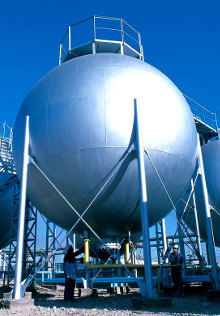WA to probe gas policy
 WA Parliament will investigate the state’s gas reservation policy amid concerns about its effectiveness.
WA Parliament will investigate the state’s gas reservation policy amid concerns about its effectiveness.
The Western Australia Parliament has announced a comprehensive inquiry following concerns raised by major consumers.
The parliamentary inquiry aims to assess the effectiveness of the gas reservation mechanism and determine if it is adequately enforced, addressing the criticism that it lacks transparency and secrecy.
Chairman of the government-controlled lower house inquiry, Labor MP Peter Tinley, has promised a thorough review of the policy to ensure it meets the needs of major gas producers.
The inquiry was prompted by the DomGas Alliance, representing significant natural gas users in WA, including Alcoa and Wesfarmers Chemicals.
They have questioned whether the mandatory 15 per cent gas reserve is being made available in the local market.
The announcement also led to the WA Liberals calling for an inquiry into the exemption granted by the McGowan government to a gas project associated with billionaire Kerry Stokes, which bypassed the gas reservation policy.
Tinley says that the inquiry is not intended as a witch hunt but as a necessary review of the visionary domestic gas reserve policy, which was established almost two decades ago by the Carpenter government.
He emphasised the need to assess its suitability for the next decade, considering the transition to a net-zero economy and the changing global energy market.
According to DomGas spokesperson Richard Harris, although the state receives assurances of domestic supply, it is uncertain whether the gas is being delivered promptly while suppliers prioritise lucrative export markets.
The current policy is not delivering the intended outcomes, falling short of the original intent and failing to bring the promised 15 per cent of gas into the market.
The parliamentary inquiry will examine the enforcement and transparency of the 15 per cent cap and the exemption granted to the Waitsia gas project backed by Kerry Stokes' Beach Energy in 2020.
The committee aims to provide a comprehensive report by late November, including findings and recommendations.







 Print
Print